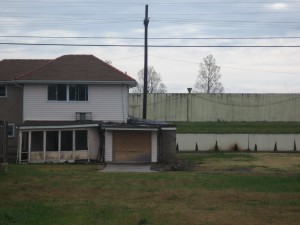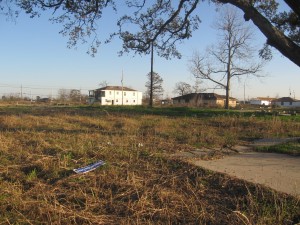After the devastation hurricanes Katrina and Rita waged on housing resources for people with disabilities, homeless and disability advocates, consumers, service providers, and state and local government agencies successfully advocated for the inclusion of 3,000 new Permanent Supportive Housing (PSH) units in Louisiana’s Road Home hurricane recovery plan. The result is the nation’s first state-driven PSH system using integrated, scattered-site housing linked with evidenced-based mobile community supports for the most vulnerable people with disabilities – including people who are homeless and people at risk of unnecessary institutionalization – supported by cross-system partnerships that provide a structure for program design, policy development, and implementation.
Several housing production strategies are being employed to reach the 3,000 PSH unit goal, and intensive efforts were undertaken to successfully obtain rent subsidies from Congress to ensure affordability of PSH. Today 430 out of the proposed 3000 individuals and families have already moved into their new homes. With subsidies now available, that number will likely reach 1000 later this year.
In addition, the state received Community Development Block grant (CDBG) funds for PSH supportive services for five years, after which the state must sustain PSH supportive services using Medicaid and other funding strategies. The Department of Health and Hospitals is exploring various Medicaid options to help sustain services after five years.
The LA Department of Health and Hospitals (DHH) designated six agencies in the hurricane affected areas to work with local homeless, health, behavioral health and youth/family service providers to identify and refer eligible individuals to housing units, and to provide access to basic housing supports and other needed care in the community. The agencies are also working collaboratively to assure the support services embody “best practices” in their outreach, clinical and continuity of care approaches. A best practice approach that has emerged relative to the PSH program is the establishment of an Assertive Community Treatment (ACT) initiative using a “Housing First” approach and a supportive housing intervention in the Greater New Orleans area. DHH is funding the services and a portion of the housing for this initiative which will serve over 300 people this year including 100 people diverted from the criminal justice system.
Today in New Orleans, a group of funders attending the annual conference for Grantmakers in Health will discuss these and other issues on a special site visit hosted by Unity of New Orleans and the Technical Assistance Collaborative on the topic of “Creating a Sustainable System of Housing & Services: Louisiana’s Permanent Supportive Housing Initiative.”

